Want to be seen here?
Connect your company to the marketplace for free.
Time for a display campaign? Ocast has gathered thousands of solutions in one place so you can get started quickly. Fill in the form and start receiving offers for campaign proposals.

The Purdue Exponent is the number one multimedia news agency independent of the university serving Purdue students, faculty, staff, and the greater Lafayette community via a printed newspaper, web, an...
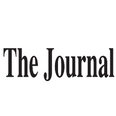
The Journal is a daily newspaper based in Martinsburg, West Virginia, and serving Berkeley, Jefferson and Morgan counties in the state's Eastern Panhandle. It is owned by Ogden Newspapers. The Journal...
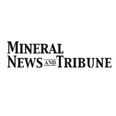
The Mineral News and Tribune is an American newspaper published in Keyser, West Virginia. It is owned by WV News as of 2022.The News Tribune publishes 4 days a week - Tuesday, Thursday, Friday, and Sa...

The Bluefield Daily Telegraph is a newspaper based in Bluefield, West Virginia, and also covering surrounding communities in McDowell, Mercer and Monroe counties, West Virginia; and Bland, Buchanan, G...

The Charleston Gazette-Mail is the only daily morning newspaper in Charleston, West Virginia. It is the product of a July 2015 merger between The Charleston Gazette and the Charleston Daily Mail. The ...
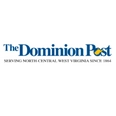
The Dominion Post is the only commercial daily newspaper in Morgantown, West Virginia. It formed from the merger of the Morgantown New Dominion and the Morgantown News into the Morgantown Dominion-New...

THE BEST LOCAL NEWS, SPORTS, AND EVENTS COVERAGE IN YOUR AREA! Mission: To be the preferred multimedia provider of local news, sports, events, and marketing in the region. The newspaper is published ...

The Herald-Dispatch is a daily newspaper that serves Huntington, West Virginia, and neighboring communities in southern Ohio and eastern Kentucky. It is currently owned by HD Media Co. LLC.The Herald-...

The Intelligencer and Wheeling News Register are combined daily newspapers under common ownership in Wheeling, West Virginia, and are the flagship publications of Ogden Newspapers. The Intelligencer i...

The Inter-Mountain is an afternoon daily newspaper serving Central West Virginia and is headquartered in Elkins. As of 2006, its circulation was quoted at 11,000. The news is currently available on-li...

The Jackson Herald is a paper in Ripley, West Virginia. It is owned by Gatehouse Media, with a print circulation of about 4,900.Established in 1876, the Jackson Herald began as a Republican weekly. I...
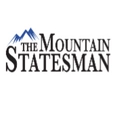
The Mountain Statesman is a thrice-weekly newspaper serving the Grafton, West Virginia area. Its 2016 circulation was 1,710.In 1946, at the age of just 20, Eldora Nuzum became editor of the Sentinel. ...

The Parkersburg News and Sentinel is the primary newspaper in Parkersburg, West Virginia. It was formed by the merger of the previously separate morning News and afternoon Sentinel on April 25, 2009. ...
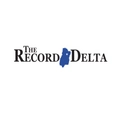
The Record Delta is the merger of the Buckhannon Record and the Republican Delta. The Buckhannon Record was founded in 1876. In the 1910s it had the distinction of being an early West Virginia newspa...

The Register-Herald is a 5-day morning newspaper, Monday thru Friday with a Weekend Edition delivered on Saturday mornings and is based in Beckley, West Virginia, and also covering surrounding communi...

The State Journal is a weekly newspaper based in Charleston, West Virginia, and published by NCWV Media. It is the only newspaper with political and general news content distributed throughout the sta...

The Times West Virginian is an award-winning, community-focused multimedia company in Fairmont, West Virginia. It serves Marion, Monongalia, Taylor and Harrison counties with newspapers, shoppers, mag...

The Lexington Herald traces its roots to 1870 and the Lexington Leader to 1888. Leader owner John G. Stoll bought the Herald in 1937; Knight Newspapers bought them in 1973. The papers merged Jan. 1, 1...

The Daily Independent is a morning newspaper covering the city of Ashland and surrounding areas of Boyd County, Kentucky. Previously published daily, the print schedule was reduced to five days a week...
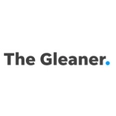
The Henderson Gleaner (also known as The Gleaner) is the daily newspaper in Henderson, Kentucky. The newspaper is published Tuesday through Sunday mornings. It has not been published on Mondays since ...
Display advertising, often referred to as banner advertising, involves visual ads placed on various websites, in contrast to text-based search ads that appear in search results on platforms like Google.
While search ads are focused on direct response, display ads aim at building brand awareness through engaging visual content like images or animations. Display advertising also enables retargeting, where ads are redirected to users who have previously visited your website, helping to keep the brand fresh in mind.
With opportunities to measure campaign performance and customize design and target audience, display advertising offers an attractive strategy for brands looking to enhance their online presence and effectively engage their target audiences.
The most effective formats and sizes for display ads vary depending on the platform and target audience, but here are some popular options:
Leaderboard (728x90 px): Positioned at the top of the page, this ad size captures visitors' attention right away.
Medium Rectangle (300x250 px): This size is flexible and can be placed in sidebars or embedded within content.
Large Rectangle (336x280 px): A larger variant of the Medium Rectangle that offers more visible space.
Wide Skyscraper (160x600 px): Often used in sidebars, offering a long, vertical ad space.
Mobile Leaderboard (320x50 px): Optimized for mobile devices and often placed at the top or bottom of the screen.
Consider adhering to industry standards and adapting ad format and size to the specific platform and your target audience. However, the emphasis should be on having well-thought-out content that engages and is relevant to your target audience with clear "Call to Actions" (CTA) to encourage clicks and conversions.
Measuring the effectiveness of your display advertising campaigns is crucial for evaluating the results of your campaign and for fine-tuning future marketing strategies. A first step could be to look over the Click-Through Rate (CTR), which represents the number of clicks your ad receives per view, providing an indication of the ad's engagement level. It is also important to track the conversion rate, which shows how many clicks are converted into desired actions such as sales or leads. Cost Per Conversion is another key indicator that helps you understand the cost-effectiveness of your campaign.
It may also be good to look at the impression rate, that is, how many times the ad has actually reached out and been displayed for brand-building purposes.
One of the major advantages of this type of advertising is its ability for audience targeting, where ads can be directed based on demographics, behavior, and retargeting, enabling a more personalized advertising experience. Moreover, with the use of various analytical tools, it becomes easy to track and measure the campaign's effectiveness by observing data on clicks, conversions, and views, which provides valuable insights.
However, display advertising also has its downsides. Ad blocking is one of the major challenges, where users can choose to block display ads, which in turn reduces the reach and effectiveness of your campaign. Ad fatigue is another downside, where ads that are shown too often can become irritating for the users, leading to decreased engagement and negative brand associations. Despite the ability for audience targeting, audience dilution can be a challenge if precise targeting is not used, which potentially leads to wasted marketing expenses. Additionally, the cost of display advertising can become significant, especially if the campaign is not well optimized to achieve desired results.
The cost of display advertising can vary based on several factors such as website, ad format, and target audience. Besides that, there are different pricing structures one can base on to adjust the cost according to the goal at hand. Below we list different pricing options for display advertising.
CPM (Cost Per Mille or Cost Per Thousand Impressions):
The price for 1000 views of your ad.
Often used for campaigns aimed at increasing brand awareness.
CPC (Cost Per Click):
The price you pay for each click your ad receives.
Used when the goal is to drive traffic to a website or increase interaction.
CPA (Cost Per Acquisition or Cost Per Action):
The price for each specific action or execution, such as a purchase or lead generation, that arises via your ad.
Used when the goal is conversions rather than just views or clicks.
CPL (Cost Per Lead):
The price for each lead generated through your ad.
Used in B2B marketing or for products/services with longer sales cycles.
CPV (Cost Per View):
The price for each viewing of a video ad.
Often used for video-based advertising campaigns.
Each pricing structure suits different goals and campaign types, and choosing the right pricing structure can help maximize the ROI for your display campaign.
Connect your company to the marketplace for free.
No commitments.